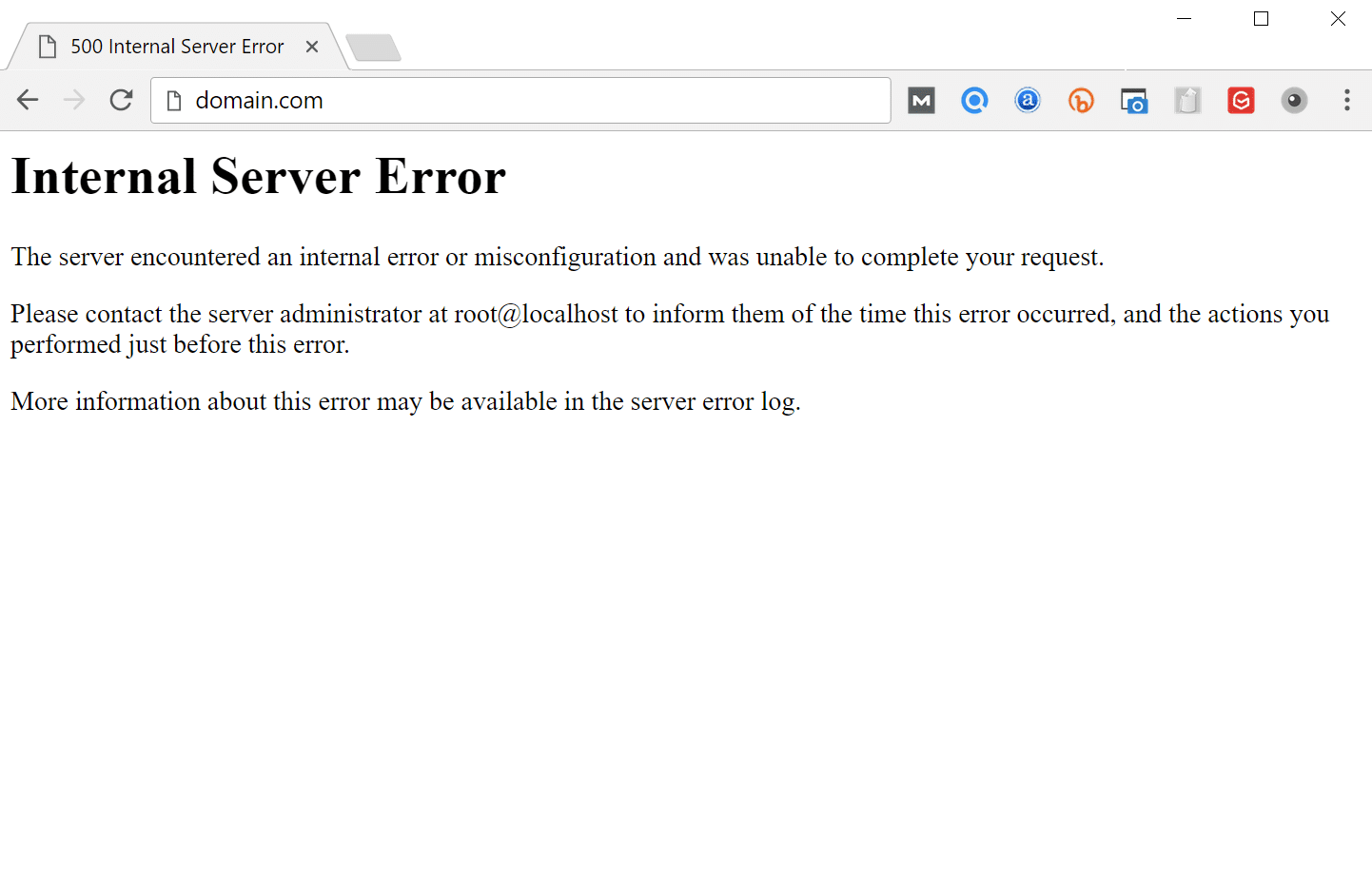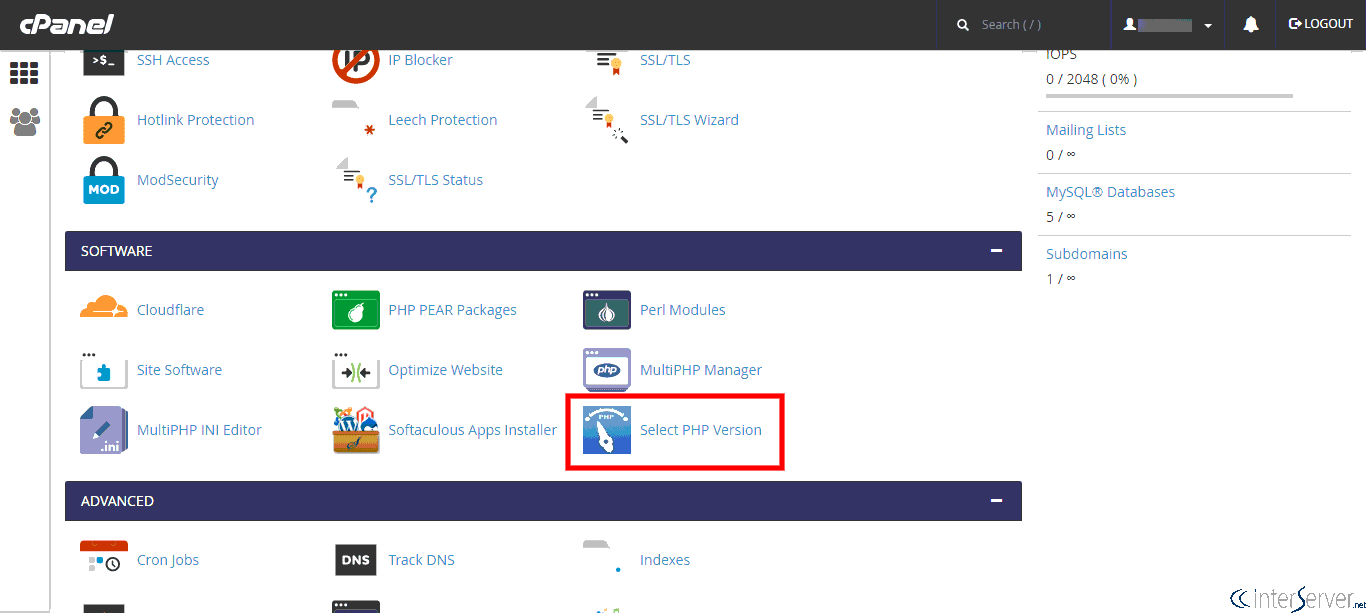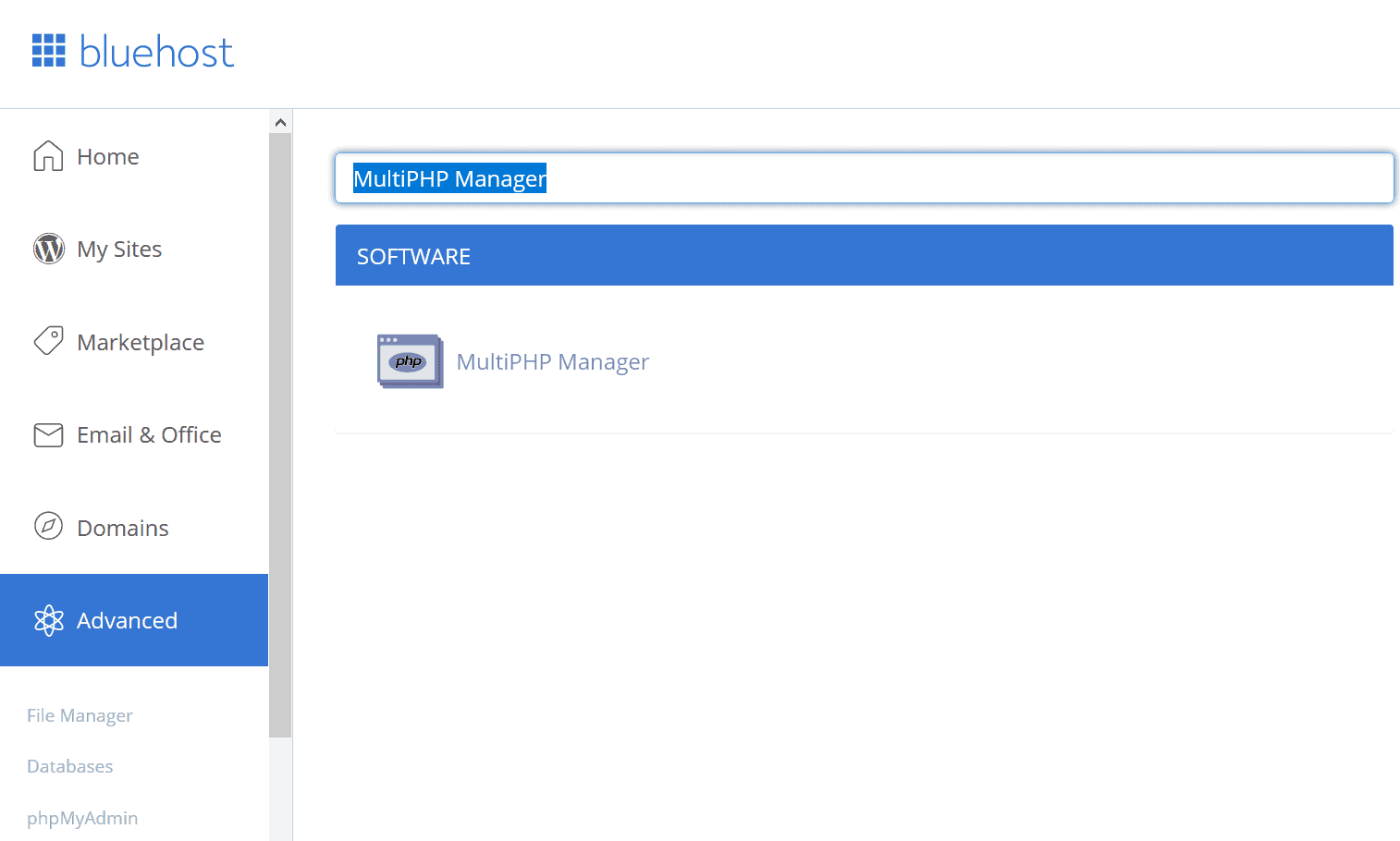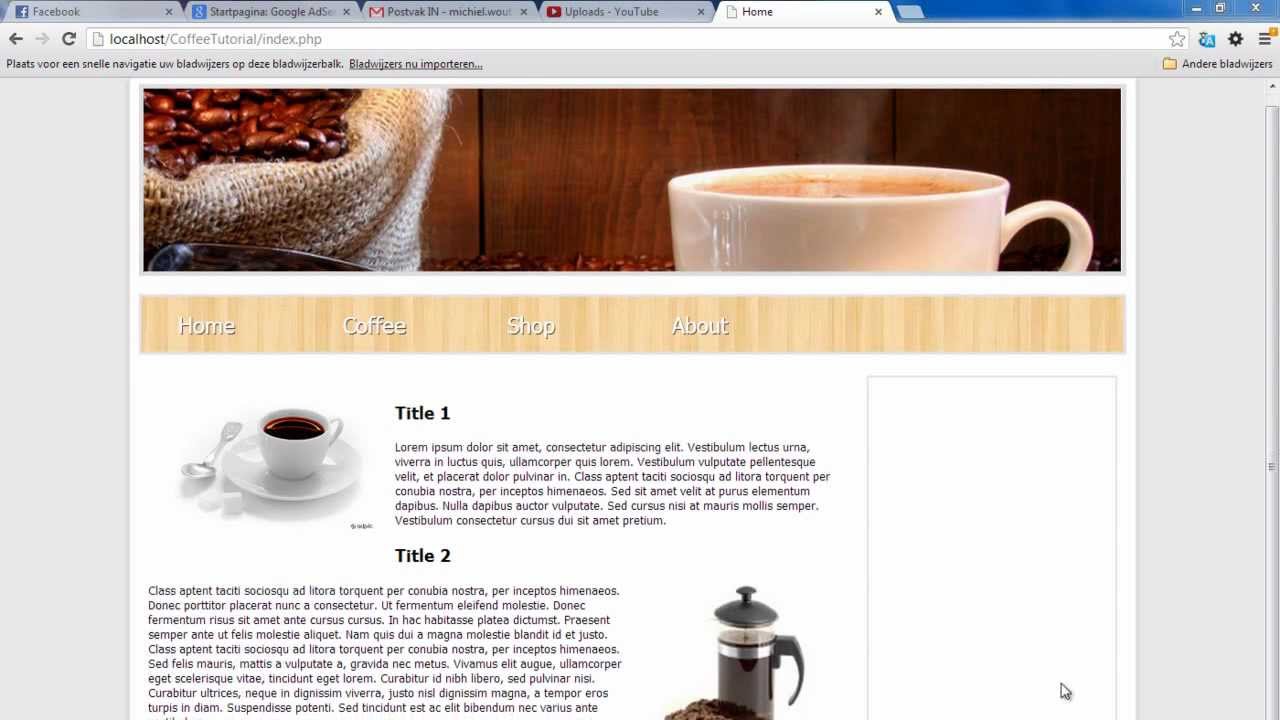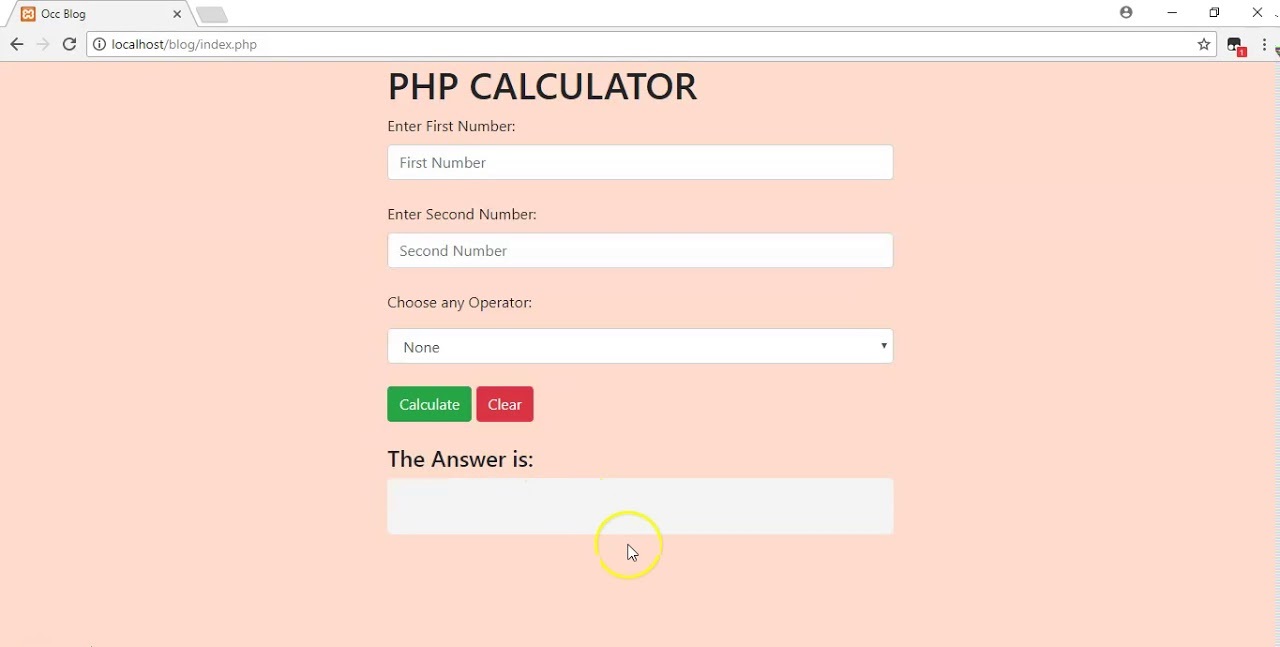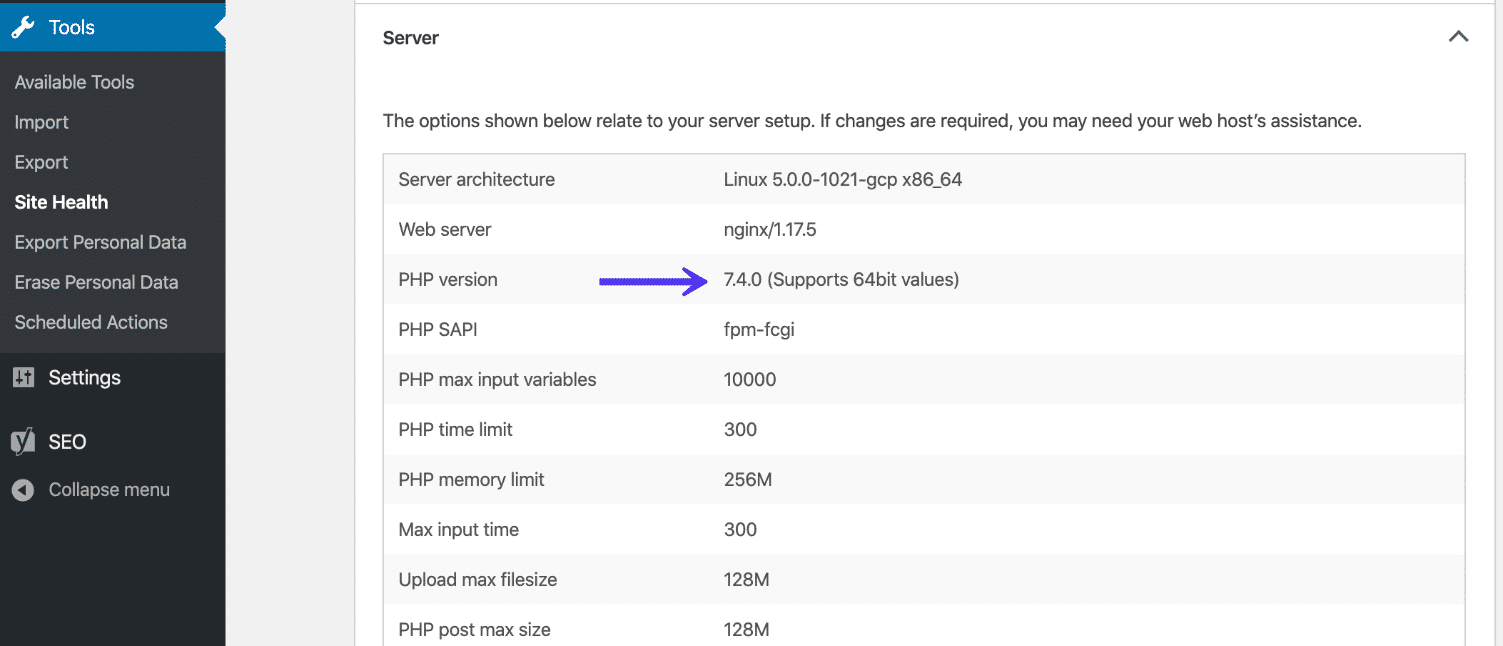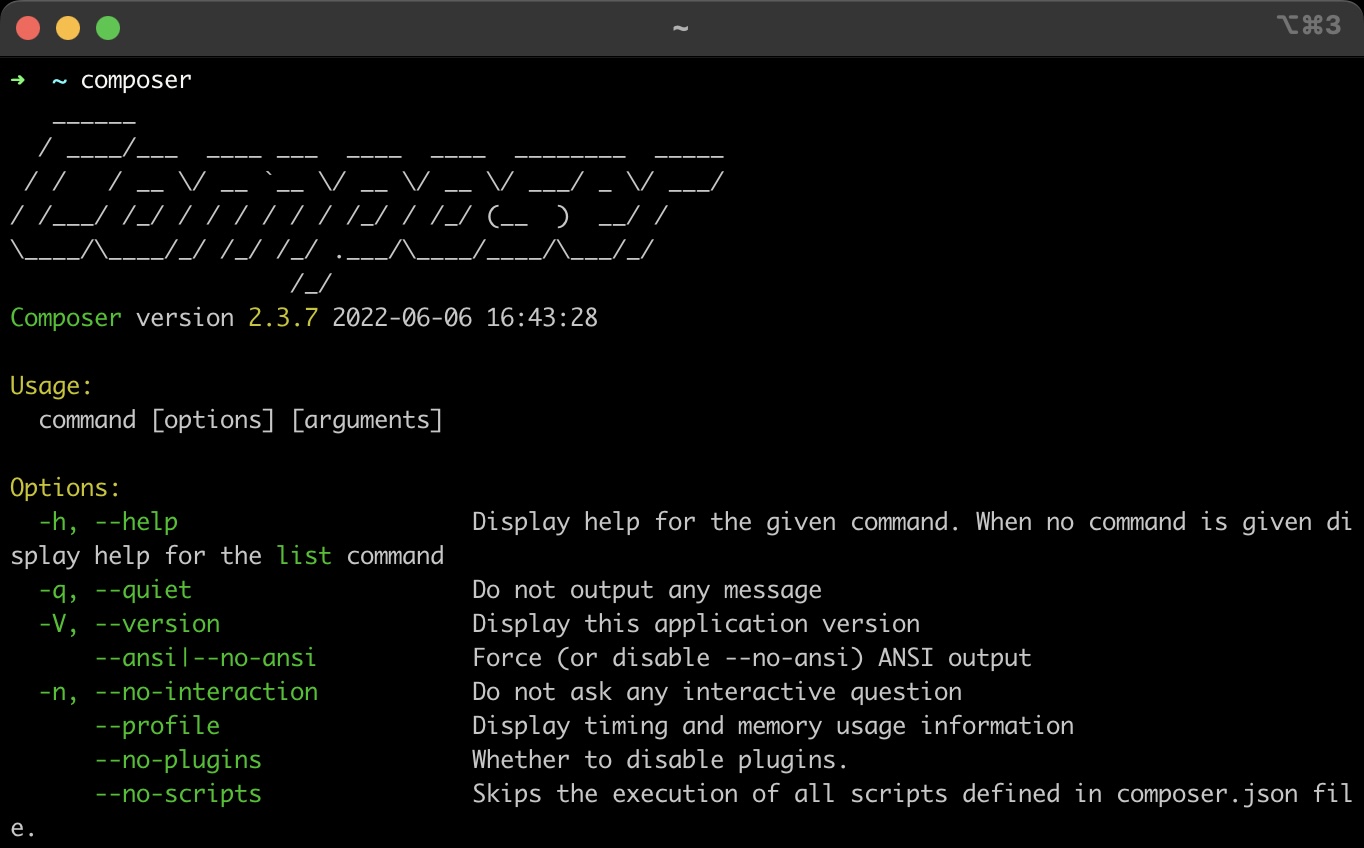Introduction
Welcome to our article on managing PHP versions when CageFS is disabled. CageFS is a powerful tool that provides a virtualized environment for hosting users, ensuring greater security and isolation. It allows each user to have their own file system, preventing users from seeing or modifying each other’s files.
However, there can be situations where CageFS is disabled or not available in your hosting environment. In such cases, it can pose challenges in managing PHP versions effectively. In this article, we will explore the scenarios where CageFS is disabled and discuss the common issues one might face in relation to PHP version management.
Managing PHP versions plays a crucial role in web development and hosting. Different PHP versions offer various features and performance improvements, enabling compatibility with different applications and frameworks. It allows developers to take full advantage of the latest enhancements and security patches.
When CageFS is disabled, it removes the layer of protection and isolation it provides for each user. This can impact the ability to manage PHP versions efficiently and can lead to potential issues that we will address later in this article.
It is essential to understand the implications of CageFS being disabled and find alternative solutions to ensure smooth PHP version management. By being aware of the challenges and potential solutions, you can make informed decisions and mitigate any associated risks.
What is CageFS?
CageFS is a virtualized file system and a security extension for shared hosting environments. It provides a layer of isolation between user accounts, ensuring that each user has their own virtualized environment, encapsulating their files, processes, and applications.
With CageFS, every user is placed within a “cage,” which is essentially a directory with a unique user ID. This cage contains all the necessary system files, directories, and libraries required by the user’s applications. It prevents users from accessing files or directories owned by other users, improving the security and privacy of each user’s account.
One of the primary purposes of CageFS is to prevent security breaches caused by vulnerable scripts or compromised user accounts. Even if a user’s account is compromised, the attacker is confined within their respective cage, unable to access or modify files outside of it. This isolation significantly reduces the impact of potential security breaches and ensures the integrity of other user accounts on the same server.
Additionally, CageFS imposes resource limitations on each user, preventing a single user from monopolizing server resources. This ensures fair distribution of system resources and enhances overall system stability and performance.
Another notable feature of CageFS is the ability to customize the environment for each user. System administrators can enable or disable specific PHP modules and extensions, restrict access to certain system binaries, and apply various other configuration settings on a per-user basis. This level of customization provides flexibility and allows users to have tailored environments that meet their specific application requirements.
In summary, CageFS offers enhanced security, isolation, and resource management in shared hosting environments. It creates virtualized environments for each user, preventing unauthorized access and ensuring fairness in resource utilization. Understanding the role and functionalities of CageFS is essential in order to effectively manage PHP versions when CageFS is not available.
The Importance of CageFS for PHP Management
CageFS plays a critical role in PHP management within a shared hosting environment. It provides several benefits that significantly contribute to the overall security, stability, and flexibility of managing PHP versions.
One of the primary advantages of CageFS in PHP management is the ability to isolate PHP configurations for each user. With CageFS, users can have different PHP versions and settings within their individual cages. This means that even if multiple users on the same server require different PHP versions, CageFS allows for seamless management without interference or conflicts.
By isolating PHP configurations, CageFS ensures that changes made by one user do not impact others. If a user encounters issues while testing a new PHP version or making changes to their PHP settings, it won’t affect other users. This isolation prevents a domino effect where one user’s actions disrupt the entire server’s PHP functionalities.
CageFS also allows for fine-grained control over PHP extensions and modules. Administrators can enable or disable specific PHP extensions on a per-user basis, providing granular control over the functionality available to each user. This feature ensures that users have access to the required extensions for their applications while protecting the server from potential vulnerabilities caused by unnecessary or outdated extensions.
Furthermore, CageFS enhances the security of PHP applications. Since every user operates within their own cage, the risk of one user’s compromised PHP application affecting others is significantly reduced. Even if a user’s PHP application becomes compromised or vulnerable, CageFS restricts the attacker’s ability to access other users’ files or launch attacks on other applications.
In addition to security, CageFS also improves the overall performance and stability of PHP management. By isolating resources within individual cages, CageFS prevents resource-intensive PHP applications from affecting others. This ensures fair resource allocation and prevents a single user from monopolizing server resources, resulting in better overall performance and stability for all users.
Overall, CageFS plays a crucial role in PHP management by providing isolation, flexibility, enhanced security, and performance optimization. It allows for seamless management of PHP versions and settings, ensuring that each user can have their preferred PHP environment without impacting others. Understanding the importance of CageFS in PHP management is essential when it comes to identifying alternative solutions in the absence of CageFS.
Scenario: CageFS is Disabled
In some hosting environments, CageFS might not be available or can be intentionally disabled for various reasons. This can create a unique scenario when it comes to managing PHP versions and configurations.
When CageFS is disabled, the primary challenge is the loss of the virtualized environment it provides. Without CageFS, users share the same system resources and directories, which can lead to potential conflicts and security vulnerabilities.
Without the isolation provided by CageFS, users are no longer in their individual cages. This means that changes made to PHP configurations or installations by one user can affect other users on the same server. For example, if a user installs a new PHP extension or changes the PHP version, it may impact other users’ applications that rely on different PHP versions or extensions.
Furthermore, the absence of CageFS removes the fine-grained control over PHP extensions and modules for each user. Admins may face difficulties in enabling or disabling specific extensions on a per-user basis, which can limit the flexibility in meeting individual user requirements.
In terms of security, the absence of CageFS eliminates the layer of protection it provides. If one user’s PHP application becomes compromised, it can potentially affect other users on the server, leading to a cascading effect of vulnerabilities. Security breaches can be more severe when CageFS is disabled, as compromised PHP applications have access to system-wide resources and files.
In summary, when CageFS is disabled, the loss of isolation, control over PHP extensions, and increased security risks become significant challenges in PHP management. It is important to address these challenges and explore alternative solutions to ensure efficient PHP version management and minimize the risks associated with the absence of CageFS.
Common Issues Faced when CageFS is Disabled
When CageFS is disabled in a shared hosting environment, several issues can arise, affecting the management of PHP versions and configurations. Let’s explore some of the common challenges users and administrators may face in such scenarios:
1. Unable to Change PHP Version: Without CageFS, changing the PHP version for a specific user becomes problematic. Since all users share the same resources and directories, altering the PHP version can impact other users who rely on different PHP versions. Users may experience compatibility issues and limitations with their applications.
2. Inability to Enable/Disable PHP Extensions: The absence of CageFS removes the ability to enable or disable PHP extensions on a per-user basis. This can limit the flexibility and customization options for individual users. Some users may require specific extensions for their applications, while others may need to disable unnecessary or deprecated extensions.
3. Lack of Resource Isolation: CageFS provides resource isolation, preventing one user from utilizing an excessive amount of server resources. However, when CageFS is disabled, users can monopolize server resources, causing performance degradation and instability for other users. This can lead to slow response times, application crashes, and reduced overall server performance.
4. Security Risks and Vulnerabilities: The absence of CageFS eliminates the isolated environment it provides, increasing the security risks for PHP applications. Compromised PHP applications can access system-wide resources and files, potentially affecting other users’ data and applications. This can lead to unauthorized access, data breaches, and potential damage to the server and its users.
5. Software Compatibility Issues: PHP applications are often built with specific PHP versions and configurations in mind. When CageFS is disabled, ensuring software compatibility across different PHP versions can become challenging. Applications that rely on specific PHP features or functions may encounter issues or break entirely if the PHP version is changed.
It is crucial to recognize these common issues to effectively address them when CageFS is unavailable. By understanding the challenges and potential risks, users and administrators can explore alternative solutions for PHP version management in the absence of CageFS.
Unable to Change PHP Version
One of the significant challenges faced when CageFS is disabled in a shared hosting environment is the inability to change the PHP version for individual users. CageFS provides the necessary isolation to allow different users to have different PHP versions without causing conflicts or compatibility issues. However, when CageFS is not available, users encounter various obstacles when trying to update their PHP version. Let’s explore the issues and potential solutions in detail.
Compatibility Issues: Changing the PHP version without CageFS can lead to compatibility problems. Applications developed with a specific PHP version in mind may not function correctly or may break entirely when incompatible versions are used. This can result in errors, functionality loss, and disrupt the user experience.
Limited Server Support: Some shared hosting environments may have limitations in terms of supported PHP versions. Without CageFS, users may be restricted to a specific PHP version that is supported server-wide, inhibiting their ability to use newer versions with enhanced features or security patches.
Resource Contentions: Changing the PHP version affects all users on the server. If a user requests a PHP version change, it may consume significant server resources during the process. This can impact the performance and stability of other users’ PHP applications, leading to slower response times, server crashes, or even service interruptions.
Alternative Solutions: Despite the challenges, there are alternative solutions for changing PHP versions when CageFS is disabled in a shared hosting environment:
- Contact Hosting Provider: Users can reach out to their hosting provider and inquire about available options for PHP version changes. The provider may have a specific process or configuration that users can follow to switch to a desired PHP version.
- Use .htaccess Overrides: If permitted by the server configuration, users can utilize .htaccess overrides to set the desired PHP version for their specific directories. This allows users to have a different PHP version within those directories without affecting other users.
- Consider a Custom Virtual Environment: In some cases, users might explore the possibility of creating a custom virtual environment using tools such as Docker or Vagrant. This allows users to have complete control over the PHP version and other configurations for their specific projects.
It is crucial for users to consult with their hosting provider and consider the available alternatives when attempting to change PHP versions in the absence of CageFS. By exploring these options, users can navigate through the challenges and ensure their PHP applications are running on the desired PHP version.
Inability to Enable/Disable PHP Extensions
When CageFS is disabled in a shared hosting environment, one of the significant challenges that users and administrators face is the inability to enable or disable PHP extensions on a per-user basis. CageFS provides a customized environment for each user, allowing them to have control over the PHP extensions available to their applications. However, without CageFS, this level of granular control becomes problematic. Let’s explore the issues and potential solutions in detail.
Lack of Customization: Without CageFS, users are unable to customize their PHP environment by enabling or disabling specific extensions according to their application requirements. This limitation can hinder the functionality and performance of users’ PHP applications, as they may rely on specific extensions that are not available by default.
Security Concerns: PHP extensions may have vulnerabilities or become outdated over time. Disabling unnecessary or deprecated extensions is crucial to reduce potential security risks. However, when CageFS is not in place, users and administrators cannot selectively disable extensions for individual users, leaving them vulnerable to security breaches or exploiting outdated extensions.
Limited Compatibility: Some PHP applications are designed to work with specific extensions. Without the ability to enable required extensions, users may face compatibility issues or encounter errors that prevent their applications from functioning correctly. This can result in a subpar user experience and impact the overall functionality of the application.
Alternative Solutions: While the lack of per-user extension management can be challenging, there are alternative solutions available when CageFS is disabled:
- Server-Wide Extensions: Users can work with their hosting provider to request the installation of necessary PHP extensions server-wide. By having the required extensions available across the server, users can benefit from their functionalities without needing per-user customization. However, this approach may not be ideal in situations where specific extensions are only needed for a few users.
- Shared Library Approach: Administrators can explore a shared library approach where common PHP extensions are loaded once into the server’s memory rather than for each individual user. This approach can optimize resource usage while providing access to essential extensions for all users. However, it may require additional configuration and may not be suitable for environments with a large number of users or resource-intensive applications.
- Alternative Extension Solutions: Users can investigate alternative solutions or workarounds to achieve the functionalities provided by specific extensions. This may involve utilizing alternative libraries, modules, or code modifications to replicate the desired functionality. However, this approach might require additional development efforts and may not always be viable depending on the specific requirements of the application.
It is crucial for users and administrators to explore alternative solutions available in the absence of CageFS to enable or disable PHP extensions on a per-user basis. By working closely with the hosting provider and considering different approaches, users can strive to meet the extension requirements of their PHP applications while maintaining a secure and efficient environment.
Lack of Resource Isolation
When CageFS is disabled in a shared hosting environment, one of the significant challenges that arise is the lack of resource isolation among users. CageFS provides a layer of resource management that prevents individual users from monopolizing server resources. However, without CageFS, users no longer have this level of resource isolation, leading to potential performance issues and instability. Let’s delve into the issues and explore potential solutions in this section.
Resource Monopolization: In the absence of CageFS, there is a risk that certain users may consume an excessive amount of server resources, such as CPU and memory. This can impact the performance and stability of the server, causing slowdowns, crashes, or even service interruptions for other users. Lack of resource isolation can lead to an unfair distribution of resources and create an imbalance in server performance.
Poor Performance: When resources are not effectively managed, it can result in poor performance for all users on the server. Requests can take longer to process, leading to slower response times and degraded user experience. Additionally, resource-intensive PHP applications from one user can impact the performance of other users’ applications, leading to bottlenecks and overall instability.
Instability and Service Disruptions: Without resource isolation, server stability can be compromised. If one user’s PHP application experiences increased resource usage, it can cause instability and service disruptions for other users sharing the same server. This can lead to intermittent service outages that can negatively impact the availability and reliability of users’ websites and applications.
Alternative Solutions: While the absence of resource isolation poses challenges, there are alternative solutions to mitigate the impact:
- Resource Allocation Policies: Hosting providers can implement resource allocation policies to ensure fair distribution of resources among users. This involves monitoring and limiting the amount of CPU, memory, and other resources allocated to each user, preventing any single user from monopolizing resources.
- Optimized Server Configurations: Optimizing the server configuration, including the use of caching mechanisms and scaling resources, can help alleviate resource contention. Load balancing techniques and resource management tools can be employed to distribute resources efficiently and ensure that every user gets their fair share.
- Upgrade Options: Users may consider upgrading their hosting plans to higher-tier options that offer dedicated resources. This provides guaranteed resource allocation and eliminates the risks associated with shared environments. Upgrading to a Virtual Private Server (VPS) or a Dedicated Server can provide better control and resource isolation.
It is essential for both hosting providers and users to implement alternative solutions to address the lack of resource isolation when CageFS is disabled. By implementing resource allocation policies, optimizing server configurations, and exploring upgrade options, it is possible to minimize the impact and ensure a more stable and efficient environment for all users.
Alternative Solutions for PHP Version Management when CageFS is Disabled
When CageFS is disabled in a shared hosting environment, managing PHP versions becomes a challenge. However, there are alternative solutions that users and administrators can explore to ensure efficient PHP version management in the absence of CageFS. Let’s discuss some of these solutions:
1. Server-wide PHP Version: In certain cases, hosting providers may offer the ability to set a server-wide default PHP version. While this approach doesn’t allow for per-user customization, it ensures that all users on the server are using the same PHP version. Users will need to ensure their applications are compatible with the chosen PHP version.
2. Custom Directory Overrides: Users can utilize custom directory overrides, such as .htaccess files, to specify a different PHP version for specific directories within their account. This approach allows for some level of customization without affecting other users on the server. However, it requires careful configuration and may not be available in all hosting environments.
3. Alternative Hosting Environments: Users can consider migrating their websites or applications to alternative hosting environments that provide more flexibility in PHP version management. Virtual Private Servers (VPS), Cloud Hosting, or managed hosting solutions often offer better control over PHP versions and configurations compared to shared hosting environments.
4. Local Development Environments: Users can set up local development environments on their machines using tools like XAMPP, WAMP, or MAMP. This allows them to choose and switch between different PHP versions easily. Once the development and testing are completed, the updated code and configurations can be deployed to the live hosting environment.
5. Continuous Integration/Deployment (CI/CD) Pipelines: Implementing CI/CD pipelines can automate the process of testing and deploying applications on different PHP versions. By utilizing tools like Jenkins, GitLab CI/CD, or CircleCI, users can define separate stages for testing on various PHP versions and ensure compatibility before deploying to production environments.
6. Custom Virtual Environments: Users can create their own custom virtual environments using tools like Docker or Vagrant. These tools allow users to set up isolated containers with specific PHP versions and configurations. Custom virtual environments provide granular control over PHP version management while keeping the application isolated from the rest of the server.
7. Stay Updated and Plan Ahead: It is essential for users and administrators to stay informed about PHP version updates and plan for any necessary upgrades or migrations. Keeping track of PHP’s supported versions, release schedules, and timelines for end-of-life support can help ensure a smooth transition to newer versions and avoid compatibility issues in the long run.
While CageFS provides an ideal solution for PHP version management, it is possible to navigate the challenges of managing PHP versions when it is disabled. By considering the alternative solutions mentioned above, users and administrators can ensure efficient PHP version management and maintain compatibility and performance for their applications.
Conclusion
Managing PHP versions when CageFS is disabled in a shared hosting environment presents various challenges. CageFS offers the benefits of isolation, customization, and resource management that greatly contribute to efficient PHP version management. However, in the absence of CageFS, alternative solutions are necessary to address these challenges and ensure the smooth operation of PHP applications.
Throughout this article, we have explored the importance of CageFS for PHP management and the common issues faced when it is disabled. The inability to change PHP versions, disable or enable PHP extensions, and the lack of resource isolation can significantly impact the performance, security, and compatibility of PHP applications.
Despite these challenges, alternative solutions exist to address these issues. These include working with hosting providers to find server-wide PHP version options, utilizing custom directory overrides, migrating to alternative hosting environments, setting up local development environments, implementing CI/CD pipelines, creating custom virtual environments, and staying updated with PHP version releases and timelines.
It is vital for users and administrators to assess their specific requirements, consult with hosting providers, and adopt appropriate strategies for PHP version management when CageFS is unavailable. By being proactive and exploring alternative solutions, users can continue to effectively manage PHP versions and ensure the stability and security of their PHP applications.
While the absence of CageFS poses challenges, it also presents an opportunity to explore new approaches and expand knowledge in PHP version management. By staying informed and embracing alternative solutions, users can navigate these challenges and maintain optimal PHP version management in shared hosting environments.









